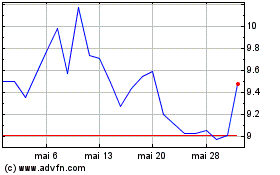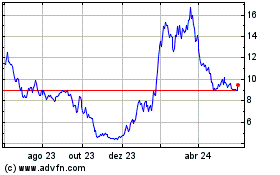-- Single Pivotal Trial Designed to Demonstrate
Efficacy and Safety of Every 3- and Every 6-Month Administration in
a 6-Month Treatment Period --
-- Pioneering Patient-Centric Dosing
Flexibility in HAE with Potential Market-Leading First-Choice
Profile --
-- Phase 3 Initiation On-Track, Expected in Q1
2025 --
-- Strong Financial Position, Funded Through
Expected Top-Line Phase 3 Results --
Astria Therapeutics, Inc. (NASDAQ:ATXS), a biopharmaceutical
company focused on developing life-changing therapies for allergic
and immunologic diseases, today announced its planned design of the
ALPHA-ORBIT Phase 3 clinical trial of navenibart in people with
hereditary angioedema (HAE), which will include both every 3- (Q3M)
and every 6-month (Q6M) treatment arms with the primary analysis at
6 months. Global start-up activities are underway, and ALPHA-ORBIT
is expected to initiate in Q1 2025, with top-line results
anticipated in early 2027.
“We are thrilled to announce our planned Phase 3 design, which
reflects feedback from regulators and is intended to support global
registration for both Q3M and Q6M administration,” said Jill C.
Milne, Ph.D., Chief Executive Officer at Astria. “With navenibart,
we are pioneering patient-centric dosing flexibility in HAE with
the goal of maximizing attack rate reduction with a compellingly
low burden of treatment. Assuming approval, we believe navenibart
will become the market-leading, first-choice therapy for HAE.”
“Our Phase 3 program was designed in collaboration with the
patient community and physicians, is based on input from global
regulatory authorities, and addresses the importance of providing
options to patients for a disease that’s highly variable,” said
Christopher Morabito, M.D., Chief Medical Officer at Astria. “Phase
3 preparations are underway, with trial initiation on-track and
expected for this quarter. We are driven by the goal of bringing a
potentially life-changing therapy to patients with HAE.”
ALPHA-ORBIT is designed as a global, randomized, double-blind,
placebo-controlled Phase 3 pivotal clinical trial to evaluate the
efficacy and safety of navenibart over a 6-month treatment period
in up to 145 patients with Type 1 or Type 2 HAE. Patients will be
randomized to receive one of three navenibart dose arms: 1) an
initial 600 mg dose and followed by 300 mg Q3M, 2) 600 mg Q6M, and
3) 600 mg Q3M, or placebo. The dose arms support the potential to
provide patient-centric dosing flexibility to people with HAE. The
primary endpoint is time-normalized monthly HAE attacks at 6
months, and a key secondary endpoint includes the proportion of
participants who are attack-free at 6 months. After 6 months,
patients may be eligible to enter a long-term extension trial, in
which all patients will be treated with navenibart (open-label) and
which will include an open-label, patient-centric flexible dosing
period. The navenibart Phase 3 program will consist of the
ALPHA-ORBIT Phase 3 trial and the long-term extension trial, which
are designed to support registration globally. The Phase 3 program
was designed with input from the European Medicines Agency and the
Company’s end of Phase 2 meeting with the U.S. Food and Drug
Administration (FDA) held in December 2024.
Planned doses for the Phase 3 ALPHA-ORBIT program were selected
based on positive final top-line results from target enrollment in
the Phase 1b/2 ALPHA-STAR trial of navenibart, announced in
December 2024, which showed rapid onset of robust and durable
efficacy, favorable safety and tolerability, and pharmacokinetics
and pharmacodynamics consistent with sustained plasma kallikrein
inhibition for both Q3M and Q6M administration. Final results
included reduction in mean monthly attack rate of 90-95% and up to
a 67% attack-free rate over 6 months. The Company will present
these data at an upcoming scientific conference.
Additional details regarding the Company’s planned Phase 3
program and other business updates are contained in the Company’s
Corporate Presentation, which is available on the “Events and
Presentations” page of the “For Investors” section of the Company’s
website.
About Astria Therapeutics:
Astria Therapeutics is a biopharmaceutical company, and our
mission is to bring life-changing therapies to patients and
families affected by allergic and immunologic diseases. Our lead
program, navenibart (STAR-0215), is a monoclonal antibody inhibitor
of plasma kallikrein in clinical development for the treatment of
hereditary angioedema. Our second program, STAR-0310, is a
monoclonal antibody OX40 antagonist in preclinical development for
the treatment of atopic dermatitis. Learn more about our company on
our website, www.astriatx.com, or follow us on Instagram @AstriaTx
and on Facebook and LinkedIn.
About Navenibart:
Navenibart is a monoclonal antibody inhibitor of plasma
kallikrein in development for the treatment of HAE. Our goal with
navenibart is to provide rapid and sustained HAE attack prevention
with a validated mechanism and trusted modality administered every
3 and 6 months. We aim to empower people with HAE to live life
without limitations from their disease.
Forward Looking Statements:
This press release contains forward-looking statements within
the meaning of applicable securities laws and regulations
including, but not limited to, statements regarding: the expected
design, timing of initiation and receipt of topline results from
the ALPHA-ORBIT trial; the goals and objectives of the ALPHA-ORBIT
trial and the long-term extension trial, including that they would
support registration of Q3M and Q6M administration, and potentially
accelerate the availability of Q6M administration; our expectations
for the dosing regimens of navenibart and the efficacy data of
navenibart in the ALPHA-ORBIT trial; the potential therapeutic
benefits of navenibart as a treatment for HAE; the potential
attributes and profile of navenibart as a treatment for HAE,
including our expectation that it will be the market-leading, first
choice and a potentially life-changing treatment for patients with
HAE; our overall vision and goals for the navenibart program;
expectations about being funded through top-line Phase 3 results;
and our corporate strategy and vision, including our mission to
bring life-changing therapies to patients and families affected by
allergic and immunologic diseases. The use of words such as, but
not limited to, “anticipate,” “believe,” “continue,” “could,”
“estimate,” “expect,” “goals,” “intend,” “may,” “might,” “plan,”
“potential,” “predict,” “project,” “should,” “target,” “will,”
“would,” or "vision," and similar words and expressions are
intended to identify forward-looking statements. Forward-looking
statements are neither historical facts nor assurances of future
performance. Instead, they are based on Astria’s current beliefs,
expectations and assumptions regarding the future of its business,
future plans and strategies, future financial performance, results
of pre-clinical studies and clinical trials of Astria’s product
candidates and other future conditions. Actual results may differ
materially from those indicated by such forward-looking statements
as a result of various important factors, including risks and
uncertainties related to: changes in applicable laws or
regulations; the possibility that we may be adversely affected by
other economic, business, and/or competitive factors; risks
inherent in pharmaceutical research and development, such as:
adverse results in our drug discovery, preclinical and clinical
development activities, the risk that the results of preclinical
studies may not be replicated in clinical trials, that the
preliminary, initial or interim results from clinical trials may
not be indicative of the final results, that the results of early
stage clinical trials, such as the results from the ALPHA-STAR
Phase 1b/2 clinical trial, may not be replicated in later stage
clinical trials, such as the ALPHA-ORBIT trial and the open-label
extension trial, the risk that we may not be able to enroll
sufficient patients in our clinical trials on a timely basis, and
the risk that any of our clinical trials, including ALPHA-ORBIT,
may not commence, continue or be completed on our anticipated
timelines, or at all; decisions made by, and feedback received
from, the FDA and other regulatory authorities on our clinical
trial design, including for ALPHA-ORBIT, and on our regulatory and
clinical trial submissions, including receipt of FDA minutes from
our December 2024 end of Phase 2 meeting, and other feedback from
potential clinical trial sites, including investigational review
boards at such sites, and other review bodies with respect to
navenibart, STAR-0310, and any other future development candidates,
decisions that we make about the design of clinical trials in
response to regulatory feedback, including the design of the
ALPHA-ORBIT trial and the long-term extension trial; our ability to
manufacture sufficient quantities of drug substance and drug
product for navenibart, STAR-0310, and any other future product
candidates on a cost-effective and timely basis, and to develop
dosages and formulations for navenibart, STAR-0310, and any other
future product candidates that are patient-friendly and
competitive; our ability to develop sufficient data to enable the
use of planned devices with navenibart, STAR-0310 and any other
future product candidates at commercial launch or otherwise as
planned; our ability to develop biomarker and other assays, along
with the testing protocols therefor; our ability to obtain,
maintain and enforce intellectual property rights for navenibart,
STAR-0310 and any other future product candidates; our potential
dependence on collaboration partners; competition with respect to
navenibart, STAR-0310, or any of our other future product
candidates; the risk that survey results, modeling data and market
research may not be accurate predictors of the commercial landscape
for HAE, the ability of navenibart to compete in HAE and the
anticipated position and attributes of navenibart in HAE based on
clinical data to date, its preclinical profile, pharmacokinetic
modeling, market research and other data; risks that any of our
clinical trials of STAR-0310 may not commence, continue or be
completed on time, or at all; risks that results of preclinical
studies of STAR-0310 will not be replicated in clinical trials; our
ability to manage our cash usage and the possibility of unexpected
cash expenditures; our ability to obtain necessary financing to
conduct our planned activities and to manage unplanned cash
requirements; the risks and uncertainties related to our ability to
recognize the benefits of any additional acquisitions, licenses or
similar transactions; and general economic and market conditions;
as well as the risks and uncertainties discussed in the “Risk
Factors” section of our Annual Report on Form 10-K for the period
ended December 31, 2023 and in other filings that we may make with
the Securities and Exchange Commission. New risks and uncertainties
may emerge from time to time, and it is not possible to predict all
risks and uncertainties. Astria may not actually achieve the
forecasts or expectations disclosed in our forward-looking
statements, and investors and potential investors should not place
undue reliance on Astria’s forward-looking statements.
Neither Astria, nor its affiliates, advisors or representatives,
undertake any obligation to publicly update or revise any
forward-looking statement, whether as result of new information,
future events or otherwise, except as required by law. These
forward-looking statements should not be relied upon as
representing Astria’s views as of any date subsequent to the date
hereof.
View source
version on businesswire.com: https://www.businesswire.com/news/home/20250113761256/en/
Astria: Investor Relations and
Media: Elizabeth Higgins investors@astriatx.com
Astria Therapeutics (NASDAQ:ATXS)
Gráfico Histórico do Ativo
De Jan 2025 até Fev 2025

Astria Therapeutics (NASDAQ:ATXS)
Gráfico Histórico do Ativo
De Fev 2024 até Fev 2025
